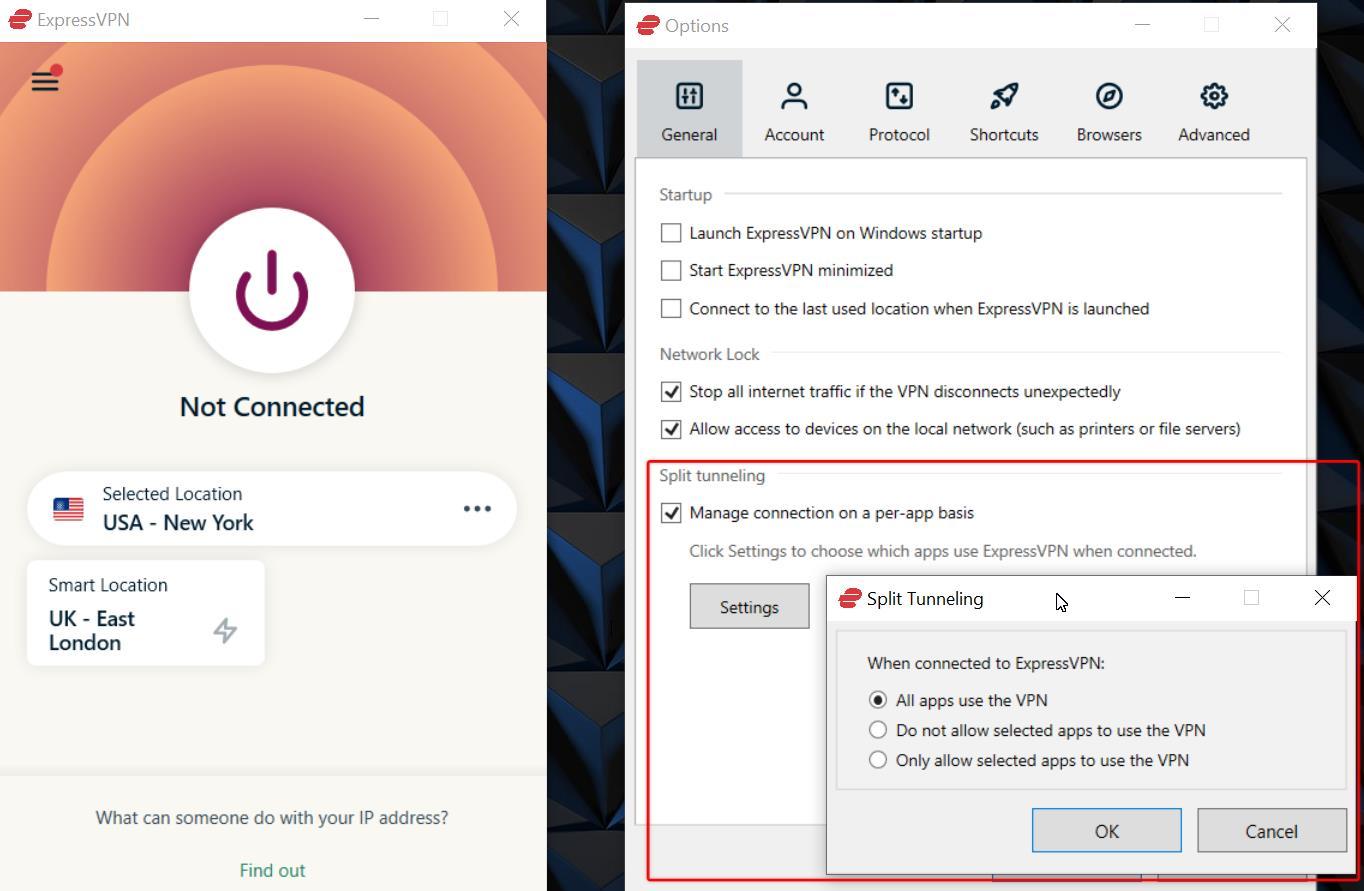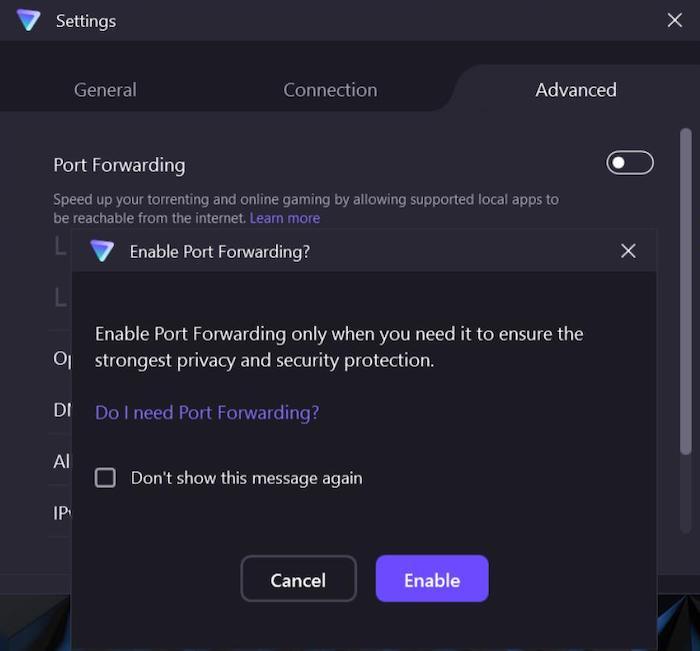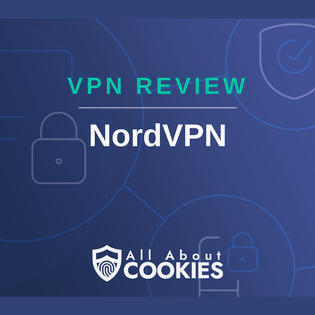Advertiser Disclosure
All About Cookies is an independent, advertising-supported website. Some of the offers that appear on this site are from third-party advertisers from which All About Cookies receives compensation. This compensation may impact how and where products appear on this site (including, for example, the order in which they appear).
All About Cookies does not include all financial or credit offers that might be available to consumers nor do we include all companies or all available products. Information is accurate as of the publishing date and has not been provided or endorsed by the advertiser.
Editorial Policy
The All About Cookies editorial team strives to provide accurate, in-depth information and reviews to help you, our reader, make online privacy decisions with confidence. Here's what you can expect from us:
- All About Cookies makes money when you click the links on our site to some of the products and offers that we mention. These partnerships do not influence our opinions or recommendations. Read more about how we make money.
- Partners are not able to review or request changes to our content except for compliance reasons.
- We aim to make sure everything on our site is up-to-date and accurate as of the publishing date, but we cannot guarantee we haven't missed something. It's your responsibility to double-check all information before making any decision. If you spot something that looks wrong, please let us know.
Best for Privacy-Conscious Users
-
Offers a free plan and lower pricing options compared to ExpressVPN
-
Has a port-forwarding feature
-
Has limited server locations compared to ExpressVPN
Best for Streaming and High-Speed Connections
-
Offers a variety of VPN protocols, including its proprietary Lightway protocol
-
Provides 24/7 customer support
-
Plans are more expensive than Proton VPN
In the ever-growing world of virtual private networks (VPNs), two major players stand out: Proton VPN and ExpressVPN. Both offer a variety of features and benefits catering to specific users and use cases. In this comprehensive comparison, we'll examine the differences in pricing, features, speed, and more to help you make an informed decision on which VPN is best for your needs.
Proton VPN vs. ExpressVPN: prices
Proton VPN vs. ExpressVPN: features
Proton VPN vs. ExpressVPN: internet speeds
Proton VPN vs. ExpressVPN: compatibility and ease of use
Proton VPN vs. ExpressVPN: customer service
Proton VPN vs. ExpressVPN FAQs
Which is the best VPN: Proton VPN or ExpressVPN?
Proton VPN vs. ExpressVPN at a glance
When comparing these popular VPNs, there are several key differences to consider.
Proton VPN stands out for its strong focus on privacy and security, making it an ideal choice for users who prioritize protecting their data above all else. On the other hand, ExpressVPN is known for its lightning-fast speeds and excellent unblocking capabilities, perfect for streaming enthusiasts and those who demand high-performance connections.
- Proton VPN: Best for privacy-conscious users
- ExpressVPN: Best for streaming and high-speed connections
How do Proton VPN and ExpressVPN compare?
 Proton VPN Proton VPN
|
 ExpressVPN ExpressVPNOur Pick |
|
| Starting price | Starts at $4.99/mo (for paid plans) | Starts at $6.67/mo |
| Max # of connected devices | 10 | 8 |
| 24/7 customer support | ||
| Compatibility | Android, iOS, Windows, macOS, Linux, routers, and more | Android, iOS, Windows, macOS, Linux, routers, and more |
| # of servers | 2,900+ in 65+ countries | Servers in 94 countries |
| VPN protocol | OpenVPN, IKEv2, WireGuard | Lightway, OpenVPN, IKEv2/IPsec, L2TP/IPsec, PPTP |
| No-logs policy | No logs | No logs |
| Unblocks Netflix? | ||
| Get Proton VPN Read Proton VPN Review |
Get ExpressVPN Read ExpressVPN Review |
Both Proton VPN and ExpressVPN offer competitive pricing, with Proton VPN starting at a lower rate of just under Free compared to ExpressVPN’s lowest rate, which usually sits around $6.67/mo.
Proton VPN also has a free VPN plan. However, ExpressVPN provides 24/7 customer support, while Proton VPN does not. In terms of compatibility, both VPNs support all major platforms, but ExpressVPN also supports routers.
ExpressVPN boasts a larger number of server locations than Proton VPN, which can translate into better performance and more options for server locations. However, Proton VPN is transparent about its server count while ExpressVPN is not. Both VPNs have a no-logs policy, which ensures your privacy, and they can both unblock Netflix, which allows you to access geo-restricted content from other regions.
When it comes to VPN protocols, ExpressVPN offers its proprietary Lightway protocol in addition to the standard options like OpenVPN, L2TP, IKEv2/IPsec, and PPTP, while Proton VPN sticks to OpenVPN, IKEv2, and WireGuard. ExpressVPN’s variety of protocols gives you more flexibility in balancing speed and security.
Proton VPN vs. ExpressVPN: prices
| Proton VPN Our Pick
|
ExpressVPN | |
| Price range | $4.99–$9.99/mo | $6.67–$12.95/mo |
| Best value plan | Proton Free for Free | 12 Months + 3 Months Free for $6.67/mo |
| Money-back guarantee | Yes — 30 days | Yes — 30 days |
| See Full Pricing Details | See Full Pricing Details |
Proton VPN has a wider price range than ExpressVPN, starting at Free for the two-year plan. Proton even has a free plan, with access to 100-plus servers in three countries (the U.S., Netherlands, and Japan). If you’re looking for more extensive features, Proton VPN’s Unlimited plan ranges from $4.99–$9.99/mo. This package includes all of Proton’s services: Proton VPN, Proton Mail, Proton Calendar, and Proton Drive.
Meanwhile, ExpressVPN's best value plan starts higher than Proton’s highest at $6.67/mo for a 12-month subscription at the time of writing. There’s also the chance to pay every six months, working out at about $9.99/mo, or you could pay month-to-month for $12.95/mo.
Both VPNs offer a 30-day money-back guarantee, so you can test the service and decide if it meets your needs before fully committing to a subscription. With these guarantees, you can confidently explore each VPN's features and capabilities.
Proton VPN vs. ExpressVPN: features
| Feature | Proton VPN | ExpressVPN Our Pick
|
| Number of servers | 2,900+ in 65+ countries | Servers in 94 countries |
| No-logs policy | No logs | No logs |
| VPN headquarters | Switzerland | British Virgin Islands |
| Encryption | AES-256 or ChaCha20 | AES-256 |
| VPN protocol | OpenVPN, IKEv2, WireGuard | Lightway, OpenVPN, IKEv2/IPsec, L2TP/IPsec, PPTP |
| Kill switch | ||
| Split tunneling | ||
| Netflix support | ||
| Torrenting support | ||
| Double VPN | ||
| Port forwarding | ||
| Blocks ads and trackers | ||
| Smart DNS | ||
| Get Proton VPN Read Proton VPN Review |
Get ExpressVPN Read ExpressVPN Review |
ExpressVPN offers more server locations, with servers across 94 countries, compared to Proton VPN's servers in 65-plus countries. However, Proton VPN is explicit about its server count while ExpressVPN is not, so it could have more servers.
Both VPNs have a strict no-logs policy, with Proton VPN's policy audited by SEC Consult. ExpressVPN's policy was audited by PwC. These audits help ensure the VPNs are living up to their privacy claims.
Both VPNs use AES 256-bit encryption and support OpenVPN and IKEv2/IPsec protocols. However, ExpressVPN also offers its proprietary Lightway protocol, which aims to provide faster connections and improved security, as well as the OpenVPN, IKEv2, and more protocols. On the other hand, ProtonVPN can also use ChaCha20 encryption and WireGuard protocol.
Both services have a lot of features in common, including a kill switch, split tunneling, smart DNS/routing, and ad-and-tracker blocking.

Proton VPN stands out for offering double VPN and port forwarding. The choice between the two will largely depend on the features you prioritize in your VPN experience.

Proton VPN vs. ExpressVPN: streaming support
| Platform | Proton VPN | ExpressVPN Our Pick
|
| Netflix | ||
| Amazon Prime Video | ||
| Hulu | ||
| BBC iPlayer | ||
| Disney+ | ||
| HBO Max |
Both Proton VPN and ExpressVPN provide excellent streaming support, allowing users to unblock regional content on popular platforms like Netflix, Amazon Prime Video, Hulu, BBC iPlayer, Disney+, and HBO Max. That way, you can access your favorite movies and TV shows from various regions hassle-free.
However, ExpressVPN stands out as a superior streaming solution. It offers MediaStreamer, an exclusive SmartDNS feature to access content that is unavailable in your region, even if the device doesn't natively support VPNs. This helps provide access to content that would otherwise be inaccessible.
Proton VPN vs. ExpressVPN: internet speeds
Quick and consistent internet speeds are essential for a smooth online experience, whether you are streaming, gaming, or surfing the web. We tested Proton VPN’s and ExpressVPN’s internet speeds on several server locations using several devices.
We began the speed testing without a VPN connection by measuring download, upload, and download latency (ping). Then, we measured the download speed, upload speed, and latency for each server location. Using this method, we can compare the effects of ProtonVPN and ExpressVPN on internet speeds in different regions and under different conditions.
Proton VPN vs. ExpressVPN speed test results
| Server location | Proton VPN | ExpressVPN Our Pick
|
| Speed % difference with US server |
|
|
| Speed % difference with EU server |
|
|
| Speed % difference with AU server |
|
|
| Get Proton VPN Read Proton VPN Review |
Get ExpressVPN Read ExpressVPN Review |
In our speed test results, ExpressVPN consistently outperformed Proton VPN in terms of download and upload speeds across all tested server locations. Higher speeds mean faster browsing, streaming, and downloading experiences for users.
When it comes to latency, Proton VPN had a clear advantage with significantly lower latency times compared to ExpressVPN in all the tested server locations. Lower latency is crucial for a smoother online experience, especially for online gaming and video calls, where minimal lag is desired.
Proton VPN vs. ExpressVPN latency comparison
| Server location | Proton VPN Our Pick
|
ExpressVPN |
| Latency % difference with US server | -40% | 15% |
| Latency % difference with EU server | -171% | 88% |
| Latency % difference with AU server | -180% | 118% |
Proton VPN vs. ExpressVPN: compatibility and ease of use
| Proton VPN | ExpressVPN | |
| Windows | ||
| macOS | ||
| Android | ||
| iOS | ||
| Linux | ||
| Router | ||
| Smart devices |

Proton VPN and ExpressVPN both offer excellent compatibility across various platforms, including Windows, macOS, Linux, Android, iOS, and routers. Both VPNs also support smart devices and browsers, including Chrome and Firefox. This wide range of compatibility ensures you can enjoy a secure and private browsing experience on multiple devices.
In terms of ease of use, both Proton VPN and ExpressVPN provide user-friendly interfaces, with easy-to-navigate settings and options. Their apps cater to beginners and advanced users, ensuring that everyone can find and customize their VPN experience according to their preferences.
Proton VPN vs. ExpressVPN: customer service
| Proton VPN | ExpressVPN Our Pick
|
|
| 24/7 live chat | ||
| Phone | ||
| Support forums | ||
| Online guides |
Proton VPN and ExpressVPN both offer a range of customer service options to assist users with any issues or questions they may have. Proton VPN provides email support and support forums, while ExpressVPN offers 24/7 live chat, email, and support forums. Additionally, both VPNs offer comprehensive online guides to help users troubleshoot any problems.
Proton VPN vs. ExpressVPN: payment options
Both Proton VPN and ExpressVPN have various payment options, so you can pick the method that best suits you, whether it be for privacy or convenience. Anonymous payment methods, such as cryptocurrencies, can provide an added layer of privacy for users who want to keep their VPN subscription details discreet.
Proton VPN payment options:
- Credit or debit card
- PayPal
- Bitcoin
- Cash
- Bank transfer
ExpressVPN payment options:
- Credit card
- Prepaid debit card
- PayPal
- bitcoin and other cryptocurrencies
- Online transfer payments via Giropay, iDEAL, Interac, and Klarna (or SOFORT)
Proton VPN vs. ExpressVPN FAQs
Is Proton VPN free?
Proton VPN offers a free plan but it has limited features. With the free plan, you can access 100-plus servers across the U.S., Netherlands, and Japan only, and you can connect to one device at a medium speed. If you want greater speeds, significantly more servers, and more features, then you can upgrade to one of Proton VPN’s paid plans.
Can I use ExpressVPN for gaming?
ExpressVPN is a great choice for gaming. The service prides itself on its minimized lag and ping. ExpressVPN also limits internet service providers (ISPs) from slowing your connection. By using a VPN, you can grab the most recent downloadable content (DLC) and games from nations with early release dates and even play games that are censored in your location.
Is Proton VPN good against hackers?
Proton VPN is excellent against cybercriminals. To safeguard your data from hackers, it employs powerful encryption, AES 256-bit or ChaCha20, and secure VPN protocols like OpenVPN, IKEv2, and WireGuard. Furthermore, Proton VPN has a no-logs policy and is based in Switzerland, which has strict privacy laws.
Why is ExpressVPN so expensive?
ExpressVPN is expensive because of its premium features, huge server network, consistently fast connections, and great customer service. To maintain a high degree of security and performance for its consumers, it also invests in frequent independent audits and the development of unique technologies, such as the Lightway protocol.
Which is the best VPN: Proton VPN or ExpressVPN?
Proton VPN has a robust feature set that includes double VPN and port forwarding. It also offers a free plan, making its services accessible to customers on a tight budget. However, its server network and speeds may be limited compared to ExpressVPN.
ExpressVPN stands out for its speed, server locations, and streaming ability. It also offers a unique Lightway protocol for increased performance. However, when compared to other VPN providers like Proton VPN, ExpressVPN's pricing is on the higher end.
If we had to pick an overall champion, ExpressVPN would win because of its quicker speeds and better streaming support. While Proton VPN offers strong privacy features and is suitable for those who want to save on a VPN, ExpressVPN's performance and extensive compatibility make it the better choice for most users who are willing to invest in a premium VPN service.
-
Premium VPN offering strong security and ultra-fast speeds
-
Strict no-logs policy with independent audit
-
In-house Lightway protocol for more speed and security
-
More expensive than NordVPN, Surfshark, and CyberGhost







